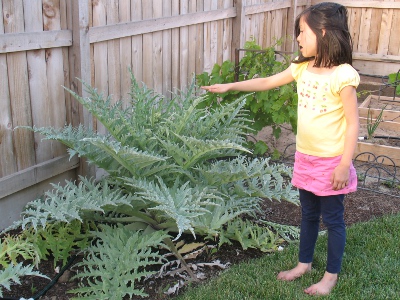Fantastic Organic Horticulture Tips That Really Work
If your garden contains lots of short plants, purchase some gardening knee pads. Long hours tending your garden can leave your knees sore and achy. Knee pads offer your knees the extra cushioning they need to stay comfortable during extended periods in the garden.
There are a great deal of benefits to horticulture, and it’s a very enjoyable hobby. Whether you choose to grow flowers, vegetables or ornamental plants, many find that nurturing and tending to a garden brings such a rewarding feeling and sense of accomplishment. This article lends a hand and gives pointers about growing plants and horticulture.
Your garden can really benefit from evergreens featuring berries. They will provide a splash of color in the drab and dreary winter months when a lot of other plants have lost their colors. Some examples include Holly, Snowberry trees, Winterberry and similar plants.
To get the best results in your garden, you need to use a good quality soil. The soil may have to be adapted, depending on what types of plants you’re planning for the garden. You may also cultivate an artificial area comprised of just one type of soil.
One way to help your organic garden thrive is to leave an undeveloped area that is conducive to the wildlife around your area. As the natural wildlife begins to flourish, the various insects, birds, and other natural life around will all blend together and actually assist your garden as it begins to grow.
Carbon Dioxide
Mix used coffee grounds into your soil. Coffee grounds are full of nitrogenous nutrients that growing plants need. Plants need nitrogen in order to thrive, so give it a natural source with coffee grounds, then watch everything come to life much more quickly.
CO2 is essential for growth. Typically, the higher the levels of carbon dioxide present in a plant’s environment, the better it will grow. The best way to expose your plants to a high level of carbon dioxide is by growing them in a greenhouse. CO2 levels are usually kept high to get the best growing situation for your plants.
Though organic farming can present challenges that traditional farming with the use of chemicals does not, harvesting the crops is reward itself for the hard work. Chemicals are extremely efficient, but the organic method is the best way to get healthy produce.
When gardening in the fall, you need to be watching for stink bugs. These bugs like to eat beans, peppers, tomatoes, and many kinds of fruits. Proper measures should be taken in order to ensure minimal damage to your crops.
Every year, rotate your organic garden. Fungus and disease are more likely to affect plants if they stay in the same location for long periods of time, especially if they belong to the same family. Harmful things may take root in the soil, preparing to take over your garden. Change the design of your garden regularly to prevent diseases from spreading.
If you’re growing veggies in the garden, they need to be in a spot that lets them get about six hours of sun daily. Many veggies require this amount to properly grow at a faster pace. This is true of some flowers.
You need to be very specific about what organic plants you plan to grow in the garden. Various types of a certain veggie or flower need different kinds of environments. Consider roses; whereas one variety may thrive in direct sunlight, others may prefer shaded areas. Be sure to pick the varieties that will work in your environment.
It’s easy to just jump in and start gardening without thought, but it’s important to plan your garden first. This helps you remember where each plant was planted before they begin to sprout. You can also prevent yourself from losing small plants within a large garden.
A valuable piece of advice is to plant crops with a high value to you personally. Buy what crops you personally like in large quantity. If you’re growing plants that are expensive to buy, you can save a lot in the future. So, sow seeds of plants that you like and reap the rewards in the future.
Allow enough room between plants for air to circulate, so that plants do not stay too wet. If your plants are moist, this can attract disease and parasites. Fungus is a common problem when plants are allowed to remain damp. You can control fungi with the application of fungicide sprays. However, the area should be treated before you see the onset of any problems.
Don’t waste your rainwater! To collect rainwater, use rain barrels or buckets. By using nature’s resources you can water your garden for free. It’s a free resource. The natural beneficial relationship between plants and rainwater is also worth noting.
As was mentioned at the beginning of this article, horticulture may be an incredibly rewarding hobby. The benefits you gain from having a garden never end! You will have fresh veggies and beautiful flowers. If you use the advice from this article, you will see the benefits taken to the next level.
When you are thinking about planting a garden, think about the herbs and veggies you use on a regular basis. Doing so will maximize the benefits of your gardening efforts and area, as well as cut down on your grocery bills. It’s pointless to grow vegetables you won’t use, doubly so if your space is limited.
